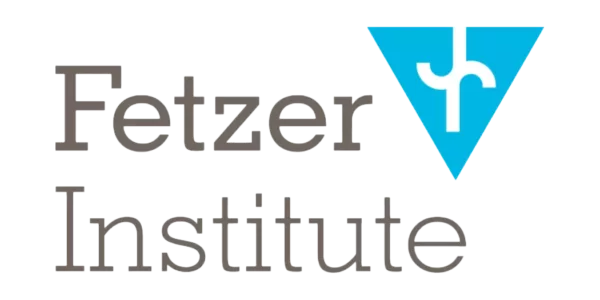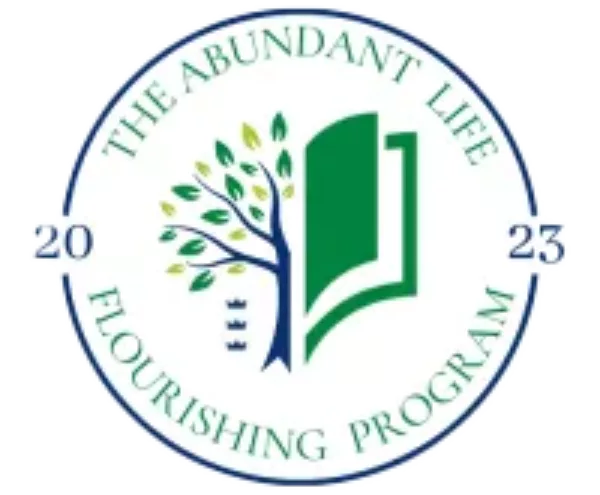Rest Easy
Open Fresh Eyes
We are researchers who care deeply about your holistic well-being. We work to turn our research into insights and practical tools that help individuals and leaders with spiritual health and experience a full and thriving everyday life.
For Growth-Seekers
Featured Research
We hold that science can provide the insight needed to understand our spiritual health and develop practices that lead to thriving. Thrive Center has been asking and studying pertinent questions about the psychology of spiritual health and thriving for two decades. Our research considers diverse perspectives and cultures and explores spirituality broadly.

Spirituality in America: Structural Topic Modeling
Our team uses cutting-edge structural model analysis to understand diverse spirituality in the U.S.

Shades of Gratitude
Our team seeks to test and develop a theoretical framework to help guide future research on gratitude.

The Reciprocating Self: A Telos of Human Development
Pamela King uses teleology to further understand the ends and means of human development and thriving.

The Joyride Project
This project seeks to integrate the theological and psychological perspectives of joy and flourishing.

Adolescent Spirituality and Thriving
Dr. King and her research team continue to explore psychological aspects of spiritual development and the potential psychological resources within religion and spirituality that promote thriving for young people.

Measuring Spirituality Among Adolescents
Pamela King and team test the psychological viability of the MDAS scale among diverse youth.
Special Projects

Interfaith America Grant - The Spiritual Health, Thriving and Chaplaincy
This grant will support an innovative collaboration between Fuller’s MA Chaplaincy (MAC) Program, the Office of Chaplains, and the Thrive Center to equip spiritually with the knowledge and tools to integrate psychological resources within religion and spirituality-engaged leaders for promoting mental health and well-being.

DACA Self-Care, Mental Health Series
In collaboration with Fuller Theological Seminary, the Thrive Center hosted DACA Thriving Tuesdays from May to June, 2020. This 5-week webinar series expands on our self-care tips and mental health resources for undocumented individuals with or without DACA.

Discussion About Patience
Psychologists, Benjamin Houltberg and Sarah Schnitker lead a table discussion with Rabbi Sherre Hirsh, Tasneem Noor, and Harlan Redmond to share their thoughts on the meaning of patience within different cultural contexts, faith traditions, and individuals.

Conversing on Sports
Ben Houltberg, associate professor of human development, reflects on working with elite athletes, performance-based identity, and the role of community in sports.

Empirical Research Allows for Thriving
Dr. King's lab researches how diverse people thrive. The empirical research focuses on spirituality, religion, virtue development, and purpose. Our interdisciplinary scholarship integrates philosophical, theological, and psychological perspectives to further understand thriving and spirituality.
Research
Publications
Christian

Vocation & Purpose
On Being and Becoming Human Through Accompaniment and Telos
Sage Journals Journal of Psychology and Theology Volume 53, Issue 1, March 2025, pp. 85-107 On Being and Becoming Human Through Accompaniment and Telos: Ontological Convergences Between Christian Anthropology and the Science of Human Development Abstract We discuss several points of convergence in ontological concepts within Christian anthropology and the contemporary dynamic, relational, developmental systems (RDS)-based approach within developmental science. Both approaches uphold the significance of relationality, particularly of mutually beneficial (nurturing) relationships between every individual and others, as both the means and the ends of human development and thriving. Both magisteriums build similarly on the fundamental significance…
Mindfulness

Ethics & Virtues
Theological Perspectives on Beliefs and Communities of Practice
Book: The Routledge International Handbook of Multidisciplinary Perspectives on Character Development, Volume I Conceptualizing and Defining Character Chapter 18 (34 pages) Theological Perspectives on Beliefs and Communities of Practice Virtue Systems as an Integrative Approach for Psychologists Abstract In order to offer a theological perspective of virtue development, we treat virtues as habitus, moral habits that are cultivated in local communities with transcendent belief narratives. Virtues are dependent on traditions to inform their purpose or telos and to give definition to the good life. Although psychology offers a conceptualization of virtues focused on the self-system—including characteristic adaptations and…
Youth

Transcendence & Spirituality
“We are Protected”: Examining youth perceptions of safety
“We are Protected”: Examining youth perceptions of safety within a faith-based positive a faith-based positive youth development program in El Salvador / Journal of Youth Development
Spirituality

Transcendence & Spirituality
Religion as Fertile Ground
Abstract An extensive body of research points toward spirituality and religiousness as resources for promoting human thriving. People with strong connections to the transcendent and religious meaning in life often view morals and values as central to their self-concepts. Although moral identity theory and contemporary views of virtue development emphasize the importance of narrative identity for habituated moral action, the two are often discussed in isolation of each other. In this chapter, the authors highlight how their commonality is particularly evident when examining the potential of religion to provide a transcendent self-narrative that leads to virtue formation and moral action…
Gratitude

Transcendence & Spirituality
How diverse beliefs shape the experience of transcendent gratitude
Citation Nelson, J., Mangan, S., Baer, R. A., Ramdass, J. V., & King, P. E. et al. (2024). How diverse beliefs shape the experience of transcendent gratitude, The Journal of Positive Psychology, 19(1), 11-24. Abstract As a novel contribution, this study considers transcendent gratitude (e.g. gratitude towards non-human benefactors such as God, Science, or Karma) across diverse belief systems. The sample included 619 participants (M age 37.5, 52.6% female) across the U.S. with beliefs across three distinct categories: a) Theistic; 38.4%), b) Spiritual but not theistic; 26.4%, and c) Non-theistic/Non-spiritual (Other);…
Thriving

Identity & Narrative
Neurodiversity and Thriving: A Case Study in Theology-Informed Psychology
Citation Leidenhag, J., & King, P. E. (2023). Neurodiversity and Thriving: A Case Study in Theology-Informed Psychology. Studies in Christian Ethics, 36(4), 827–843. https://doi.org/10.1177/09539468231187784 Abstract The concept of ‘neurodiversity’ to speak of conditions such as autism, dyslexia, and others as differences, not disorders or pathologies, relies on a robust account of human flourishing that can incorporate these conditions. Conceptions of illness and well-being are always partially theological, whilst also having to be grounded in the empirical realities of the present time. Therefore, positive developmental psychology is a particularly apt field for developing a theology-informed psychology. This article argues that recent…
Wellbeing

Transcendence & Spirituality
Religious involvement in adolescence
Citation Vaughn, J. M., & King, P. E. (2024). Religious involvement. In Encyclopedia of Adolescence (pp. 411–421). Elsevier. https://doi.org/10.1016/B978-0-323-96023-6.00002-6 Abstract Religion and spirituality are well-established contributors to adolescent well-being and development. Though efforts to identify the specific manners through which they may influence adolescents are ongoing, involvement in a religious congregation or community appears particularly beneficial. Religious involvement, which can take many forms, offers adolescents increased access to an abundance of resources – social, ideological, and transcendent. Accordingly, after describing trends in adolescent religiosity and religious involvement, we unpack what it means for an adolescent to be involved in their…
Spirituality

Transcendence & Spirituality
Spiritual Formation in Theological Education: A Multi-case Exploration on Seminaries and Student Development
Citation Wang, D. C., Reed, A., Greggo, S., Bowersox, L., Drennan, A., Strawn, B., King, P. E., Porter, S. L., & Hill, P. C. (2023). Spiritual Formation in Theological Education: A Multi-case Exploration on Seminaries and Student Development. Christian Education Journal: Research on Educational Ministry, 20(1), 65–86. https://doi.org/10.1177/07398913231177722 Abstract In recent decades, theological schools have demonstrated increased interest in educational models that not only transmit knowledge and skill to students, but also prepare them to have the character and virtue dispositions needed to successfully navigate the moral challenges that await them in future ministry settings. This shift is reflected in…
Thriving

Vocation & Purpose
Hindsight in the 2020’s: Looking back and forward to positive youth development and thriving
Citation King, P. E., & Mangan, S. (2023). Hindsight in the 2020s: Looking back and forward to positive youth development and thriving. In L. J. Crockett, G. Carlo, & J. E. Schulenberg (Eds.), APA handbook of adolescent and young adult development (pp. 609–627). American Psychological Association. Abstract Positive youth development (PYD) started as a field of practice before it became a field of study. With a heightened awareness of the necessity of a framework for the thriving of all youth and all societies, the chapter considers the purpose of PYD and consequently revisits the concept of teleology, offering a revised understanding…
How it Works







